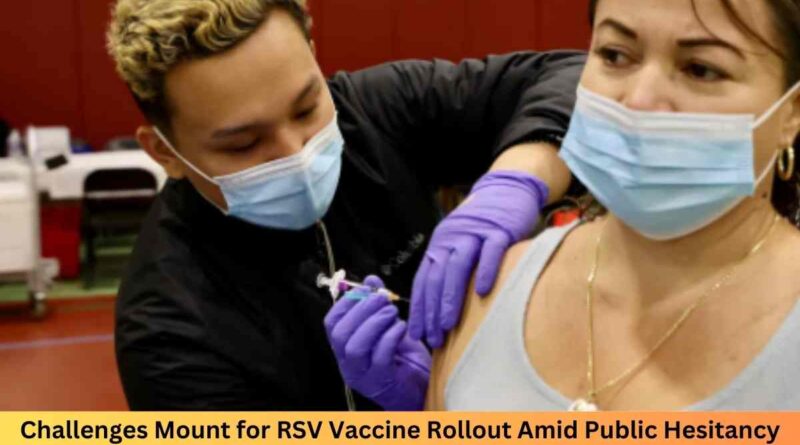Challenges Mount for RSV Vaccine Rollout Amid Public Hesitancy and Awareness Gaps
Challenges Mount for RSV Vaccine Rollout Amid Public Hesitancy and Awareness Gaps :After decades of research, the first vaccines for respiratory syncytial virus (RSV) have finally reached the public. Designed to protect high-risk groups, particularly older adults and infants, the vaccines—Arexvy by GSK and Abrysvo by Pfizer—have the potential to significantly reduce hospitalizations and deaths. Yet, health experts are finding that public hesitancy and low awareness about RSV are hindering widespread adoption, posing new challenges in getting this critical vaccine into the arms of those who need it most.
The Importance of RSV Vaccination
RSV causes severe respiratory illness, particularly in infants, older adults, and those with weakened immune systems. Each year, it leads to between 60,000 and 160,000 hospitalizations and around 10,000 deaths among adults over 65 in the U.S. Despite these numbers, awareness about the virus and the vaccines is notably low among older adults, many of whom assume RSV only poses risks to children, leading to hesitancy in receiving the vaccine.
Mistrust and Hesitancy in the Post-COVID Era
For many healthcare providers, the rollout of the RSV vaccine echoes challenges experienced during the COVID-19 pandemic. A politicized climate surrounding vaccines has left some people wary of new immunizations, making the public reluctant to adopt the RSV vaccine. Health experts note that if RSV vaccines were administered as widely as flu shots, hospitalizations and deaths could be reduced by as much as 60% in the first year. Yet, current RSV vaccine uptake in eligible older adults remains around 17%, compared to over 70% for the flu vaccine.
Barriers to Awareness and Accessibility
Experts identify a significant gap in awareness about RSV’s impact on older populations, with many people unaware of the virus’s potential severity for adults. A survey by University Hospitals found that older adults often mistake RSV symptoms for the flu, leading to delays in seeking appropriate treatment or vaccination. Furthermore, logistical challenges such as limited information distribution and access to local vaccination sites also contribute to the vaccine’s slow adoption.
Also Read : Patrick Ewing Rejoins the New York Knicks as Basketball Ambassador, Bringing a Legacy Full Circle
Strategies to Encourage Vaccination Uptake
Recognizing the barriers, health experts are focusing on targeted outreach and education. Studies highlight the importance of delivering information through trusted community sources. For example, Dr. Carina Marquez at Zuckerberg San Francisco General Hospital is exploring how social networks, such as family and community organizations, can be leveraged to promote RSV vaccinations among Latino populations. Culturally tailored messaging, in particular, may be effective in improving vaccine uptake among diverse communities.
Conclusion: Bridging the Gap for Public Health
As RSV cases increase during the fall and winter months, efforts to boost RSV vaccine adoption remain crucial. Health professionals emphasize that with the RSV, flu, and COVID-19 vaccines available, a coordinated approach could dramatically reduce respiratory-related hospitalizations and deaths this season. By addressing hesitancy and improving accessibility, health agencies hope to establish the RSV vaccine as a mainstay in preventative care for at-risk adults.
Expanding public knowledge about RSV and breaking down barriers to vaccination access will be vital to ensuring the health benefits of this long-awaited vaccine are realized.
Follow Us on NewUSANews Facebook Page For More Updates
